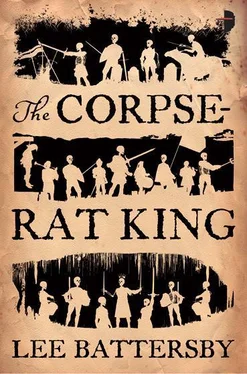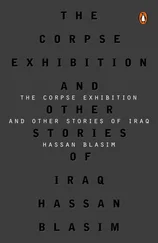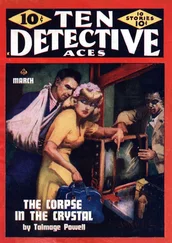“Why?” he growled, shaking his whimpering prisoner, and then, when he received no response, shouting. “Why?”
The archer said nothing, indeed, seemed capable of no reply. His gaze was fixed upon the dead stare of his companion and only a terrified sob escaped his lips at regular intervals, like a clockwork baby winding down. Marius curled his lip in disgust, and leaned forward so that his mouth brushed against his victim’s ear. The archer flinched, his gaze sliding round as far as it could towards Marius.
“Run,” Marius whispered. “Don’t stop. Ever. Not for cities, not for oceans, not for the edge of the world.” Gently, he loosened his grip upon his captive’s neck. “Go on,” he said, his voice soft in the terrified man’s ear. “Run.”
The terrified archer prised himself away from the tree. With one last look at his fallen colleague he stumbled towards the edge of the clearing. By the time he entered the brush he was running. Marius listened to his passage for perhaps half a minute, then sighed and looked around at his surroundings for the first time.
It was a meagre campsite, to say the least. The two bandits had obviously been laying in wait for unwary travellers, hoping to strike lucky, or at least snaffle some decent food. A tripod of crooked branches stood over a tiny circle of rocks, and the few charred sticks within were ample evidence that the fools hadn’t even possessed enough smarts to start a decent fire. A single battered plate perched on top of the branches. Marius wrinkled his nose at the contents. Whatever it was in life, the meagre meal inside had far too much gristle to have been in good health. He dropped the plate into the dirt, and scouted around.
Two thin, ripped blankets had been rolled up and placed against the base of a tree, and apart from the bow and knife at his feet, it seemed the only things his assailants owned were the threadbare clothes they wore. It was no wonder they were so eager to purloin the cart, Marius thought. Compared to their pathetic belongings it must have promised untold riches. Reminded of the attack, he reached up and pulled the arrow from his back, looked closely at it, then flung it from him in disgust. Even the arrows were old, the tip showing signs of re-carving and repeated hardenings in the fire. The arrow struck the corpse of the swordsman. Marius looked down at him for a few moments, then trudged back to the cart to rummage around in the back. Eventually, he withdrew a short-handled shovel and made his way back to the clearing. Picking a soft spot on the downhill side of a short incline, he dug a hole a few feet deep, then carried the dead man over and dropped him into it. He stood, staring down at the unmoving corpse.
“Come on,” he said eventually, then again, as the corpse in the hole made no attempt to rise, “Come on!”
Soon he was screaming it, tears streaming down his cheeks, his hands clenched into fists on his thighs as he crouched over and expelled his fear into the roughly dug hole.
“Come on, come on, come on you bastard. Get up. Get up. Please.” He sank to his knees, shoulders slumped, arms hanging loosely at his sides. “Please,” he whimpered, “Not just me.” The bandit stayed where he was, neck bent at an unnatural angle, eyes staring through the dirt wall into infinity.
Then Marius heard something – a scratching; the tiniest of movements from the bottom of the hole. He leaned forward, gripped the edge of the grave, eyes searching for animation in the swordsman’s corpse. The sound grew louder. Marius frowned. It sounded like digging. Dirt moved under the dead man, then a hole opened, tiny at first but growing larger and larger until it filled the bottom of the grave and the dead man was no longer held by the earth but supported by a dozen hands reaching up from below. As Marius watched he was slowly borne downwards into the dark, then passed beyond the edge of the grave to arms waiting just out of sight. Six faces peered up at Marius, their dead visages fixed in anger.
“The king,” six voices sounded in the dark, whilst dead eyes met his, “Where is our king?”
Marius fell back as the dead reached up and began to pull the walls of the grave in after them. He scrabbled backwards, beyond the line of trees at the clearing’s edge, the dead voices following him, “Where is our king? Where is our king?” until they were cut off and all that he could see from his hiding place was an unbroken plane of sand where the hole had been. He stood, eyes fixed on the empty spot, took one step backwards, and another, then turned, and with no more thought in his head than a dead man, ran from the clearing as if the wolves of Hell were chasing.
EIGHT
There are some objects in the universe so large, so immense , that they bend the laws of physics to suit themselves. Smaller things, even if they are themselves of such a size as to stagger the imagination, are caught within their gravitational pull, never to be released, and what does manage to escape is either too small to be noticed, or so broken and destroyed as to be useless. Philosophers in the King’s palace had recently announced that the planets orbited the sun in this way, and that light, a substance so large and all-encompassing that it covered the Earth like a blanket, was actually held in thrall to the spinning of our own planetary surface. No matter how large, or powerful, there is always something bigger that will suck you in, enslave you to its movement and make you a mere satellite.
Borgho City was such a place.
It is said that wherever a king resides lies the governance of a country, but wherever the largest river meets the sea lies the true power. Borgho City squatted over the largest delta at the mouth of the largest river in the largest country on the continent, and whatever power was held within her massive stone walls was as twisted and incomprehensible as the street system that had grown up over the decades of occupation. Its walls, it was said, had exhausted quarries as far away as the Penate Mountains. In fact, most of the walls were made of rammed earth, deposited in vast hills when the first harbour had been dredged from the silt and sand of the delta mouth, but Borgho City had grown so big that truth and memory were only two of its satellites. A mile from the city walls, the road Marius was on crested a rise, before plummeting down towards the nearest gate. Marius paused as he reached the top, found a nearby lump in the surrounding ground, and sat down to watch the traffic as it approached the entrance.
Foolish men, such as those who never have to leave a city, will tell you that the walls surrounding it, and the guards who man them, exist to defend the city from its enemies – to provide a barrier between the riches within and the covetous, barbarian masses without. Wise men know that this is nonsense. Walls exist to contain gates, and soldiers exist that they may stand next to those gates and demand tribute from anyone wishing to enter. Outsiders desire entrance, guards exact a levee, and then spend it on booze, women and gambling. If they’re good, Gods-fearing men. If not, well, there are a million ways to part a guard and his money, and not all of them have to be approved by a majority of the churches to be fun. Thus the economy is kept vibrant, money moves in the right directions, taxes are manageable, and the whole system runs along as smoothly as a slaughterhouse production line. The truly wise, amongst whom you can count guards, guards’ mistresses and those who didn’t learn their lesson the first time they tried to get into a city, know the truth: there are a million ways to part a guard and his money, so to a guard, money is a useless and transitory thing. If you really want to get into a city unscathed, that is, with your belongings intact and all those special little items you’ve secreted about yourself in the hope the authorities won’t go searching for them, you need to know what your gatekeepers really want. There are as many desires as there are guards to a gate, and the only way to know which one is the most appropriate is to find a good vantage point, pull up a piece of ground, and watch a while.
Читать дальше












